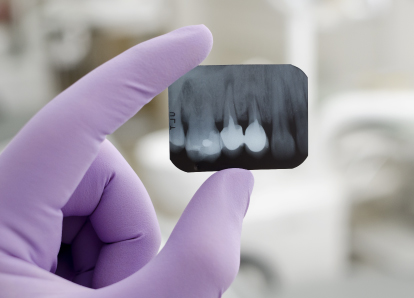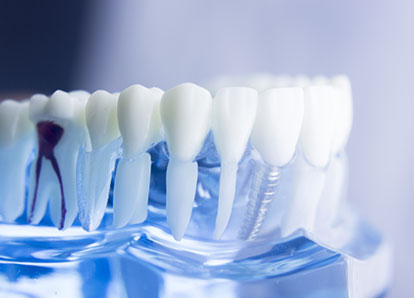ROOT CANAL TREATMENTS
What is root canal treatment?
Root canal treatment is more correctly termed – ‘Endodontic treatment’.
The nerve and vascular tissue (or pulp) inside a tooth and tooth roots can ‘die’ (devitalize) for a number of reasons including…
- Decay (a breakdown of the tooth surface and tissues by acids produced by bacteria)
- Trauma or fracture of the tooth
- Wear or tooth surface loss (from grinding, erosion, abrasion etc)
- Significant gum disease
- Heavily filled or crowned tooth (which can devitalise as a process of attempting to save it)
Root canal treatment is conducted when one of the above problems leads to…
- Intolerable sensitivity when eating, drinking or when air is drawn over the tooth
- Pain on biting where a fracture or crack threatens the structural integrity of the tooth
- Significant discomfort, which occurs as the pulp becomes inflamed, heralding the probable progression to death of the pulp
- Pulp necrosis (death of the pulp tissues) leading to the formation of an abscess
The aim of root canal treatment is to relieve discomfort, prevent the risk of, or remove a source of infection. Doing this allows the tooth to be retained as the alternative is extraction of the tooth.
The relief of discomfort that this procedure provides (and advances in treatment techniques and equipment) now mean that patients feel very comfortable choosing this as a positive method of attempting to keep a tooth that is otherwise compromised.
What is the procedure for having root canal treatment?
Treatment usually involves 2 visits to the dentist (usually a week or two apart), following diagnosis.



